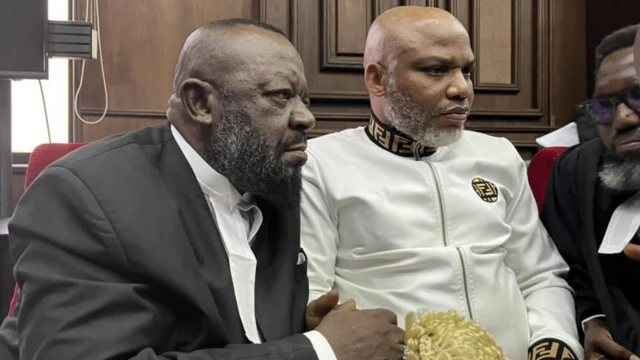Commenting on matters that are before the court appears like a pre-emptive move against the court. However, Nnamdi Kanu's allegations that the Department of State Services (DSS) obtained a confessional statement from him under duress warrant thorough examination, it also raises critical questions about timing, credibility, and due process that must be objectively scrutinized.
The secret police is among the remaining institutions that most Nigerians believe in its operations, as it works within the framework of national and international standards on human rights and lawful questioning. The organization, preserving internal security as its mandate, ensures that suspects, including high-profile individuals like Kanu, are treated according to the law.
In this context, one must ask: if the said confessional statement was indeed extracted under duress? Why has Kanu not raised this issue with his legal team over the past several years, given the high-powered legal representation he has enjoyed and the ample access to judicial processes? Why has there been no mention of it in any of his court appearances, media briefings? it is puzzling that such a serious allegation is only now being made public.
Furthermore, the Nigerian judiciary has, on multiple occasions, entertained applications and motions from Kanu’s legal counsel. At no point during these proceedings was there a formal petition, affidavit, or complaint submitted alleging coercion or forced confession while in DSS custody. This omission undermines the credibility of the current claim and suggests that it may be strategically timed to influence public opinion or disrupt legal proceedings.
According to records tendered by the Federal Government's legal team, two video compact discs (CDs) containing the recorded interview sessions were submitted as evidence, in addition to three handwritten statements personally authored by Kanu after each session were also presented in court.
These materials were introduced not only as part of the prosecution’s evidence but also to reinforce the legitimacy and voluntary nature of Kanu's interactions with the DSS. The fact that the interrogations were both recorded and documented in Kanu’s handwriting significantly weakens any claims of duress.
It is also important to recognize the DSS’s consistent denial of any form of torture or ill-treatment. The Service has maintained that all interactions with detainees are conducted lawfully and professionally, often under the scrutiny of legal observers and with regular medical evaluations in place.
While every individual has the right to raise concerns about their treatment, such claims must be assessed against verifiable facts and legal records; the allegations against the DSS should be viewed with a healthy degree of cynicism. If there are genuine grievances, the proper course of action remains the legal route, not sensationalized public claims. Upholding the integrity of Nigeria’s legal institutions and ensuring accountability through due process must remain the priority for all parties involved.
By Ogbonaya Igwe




